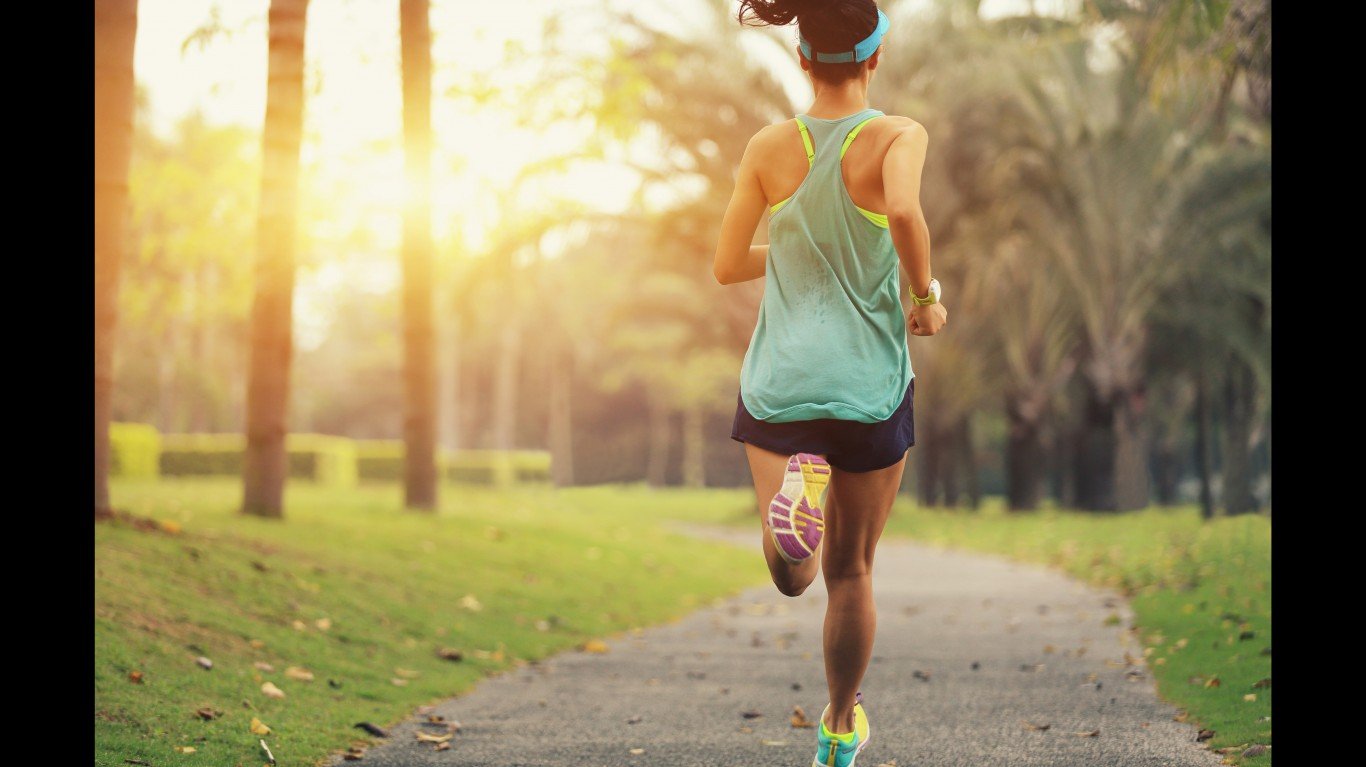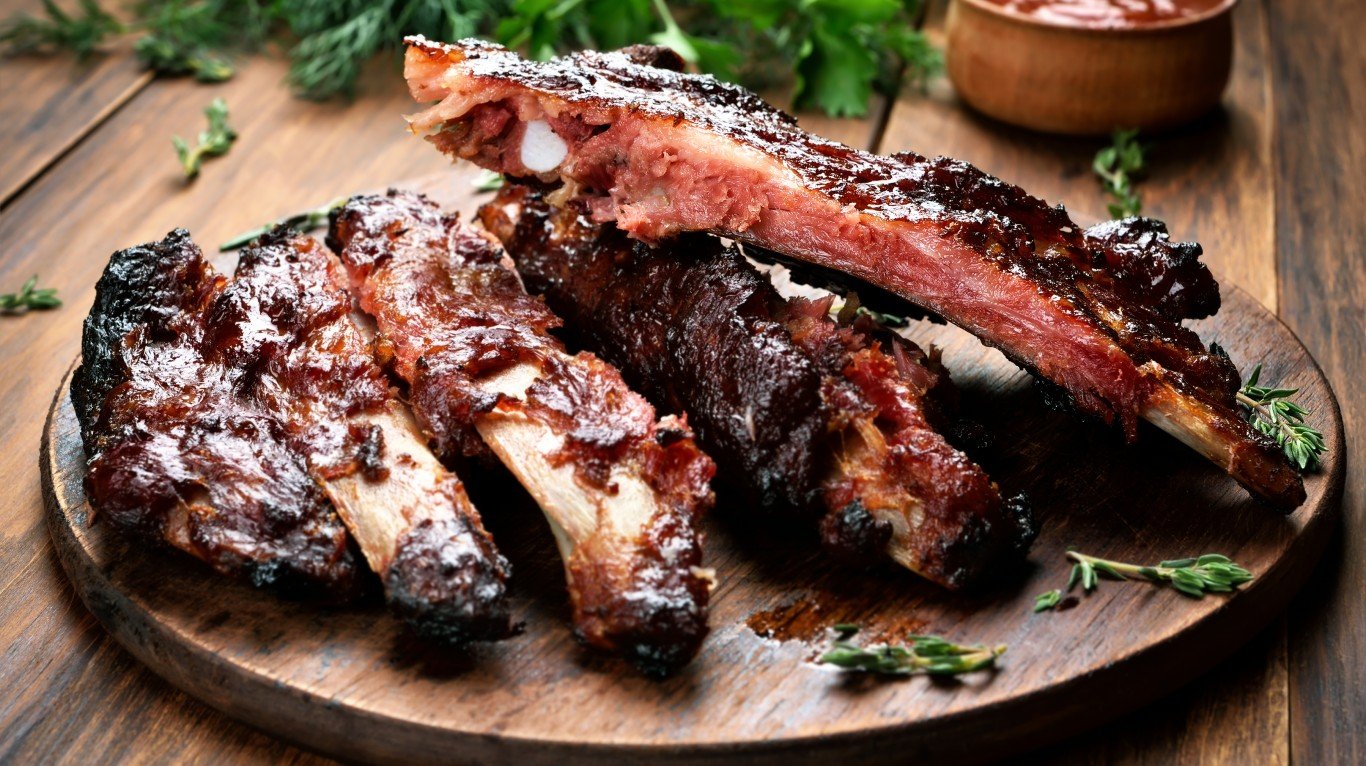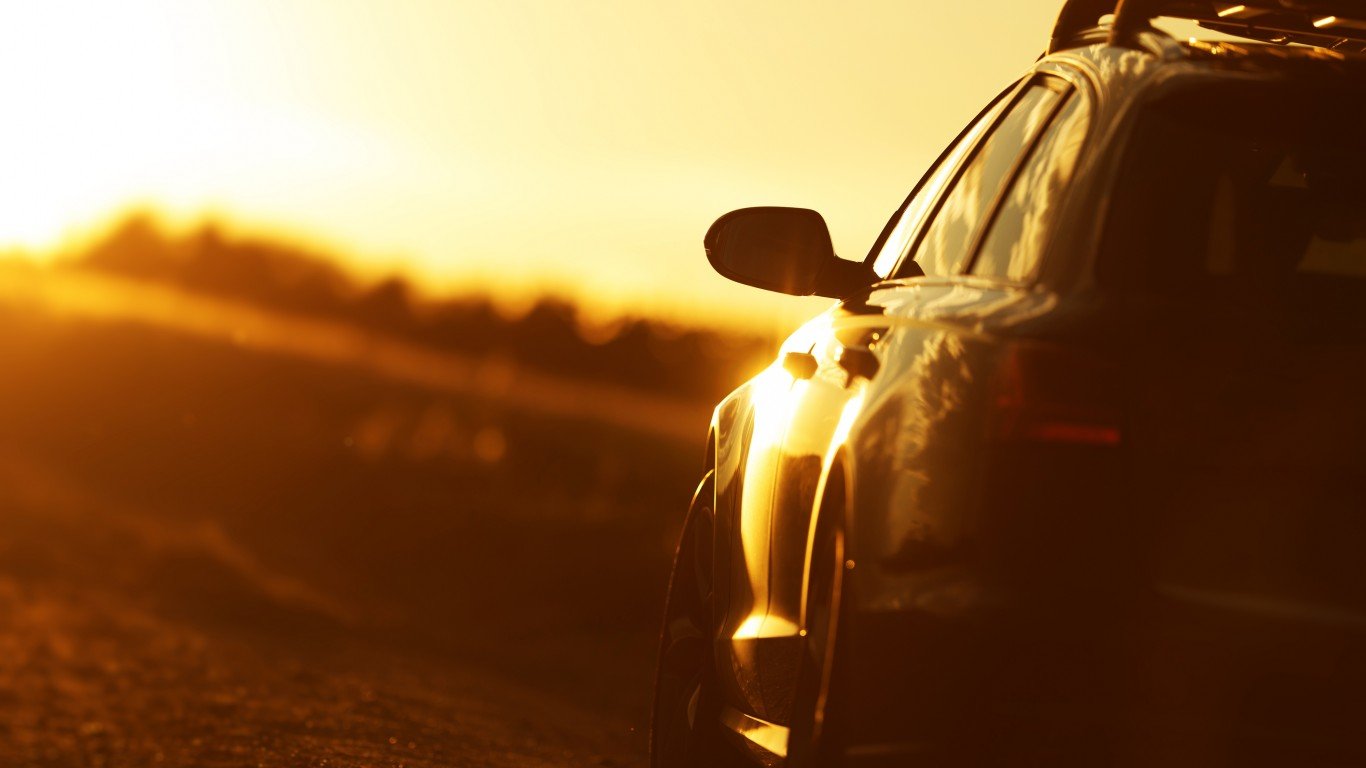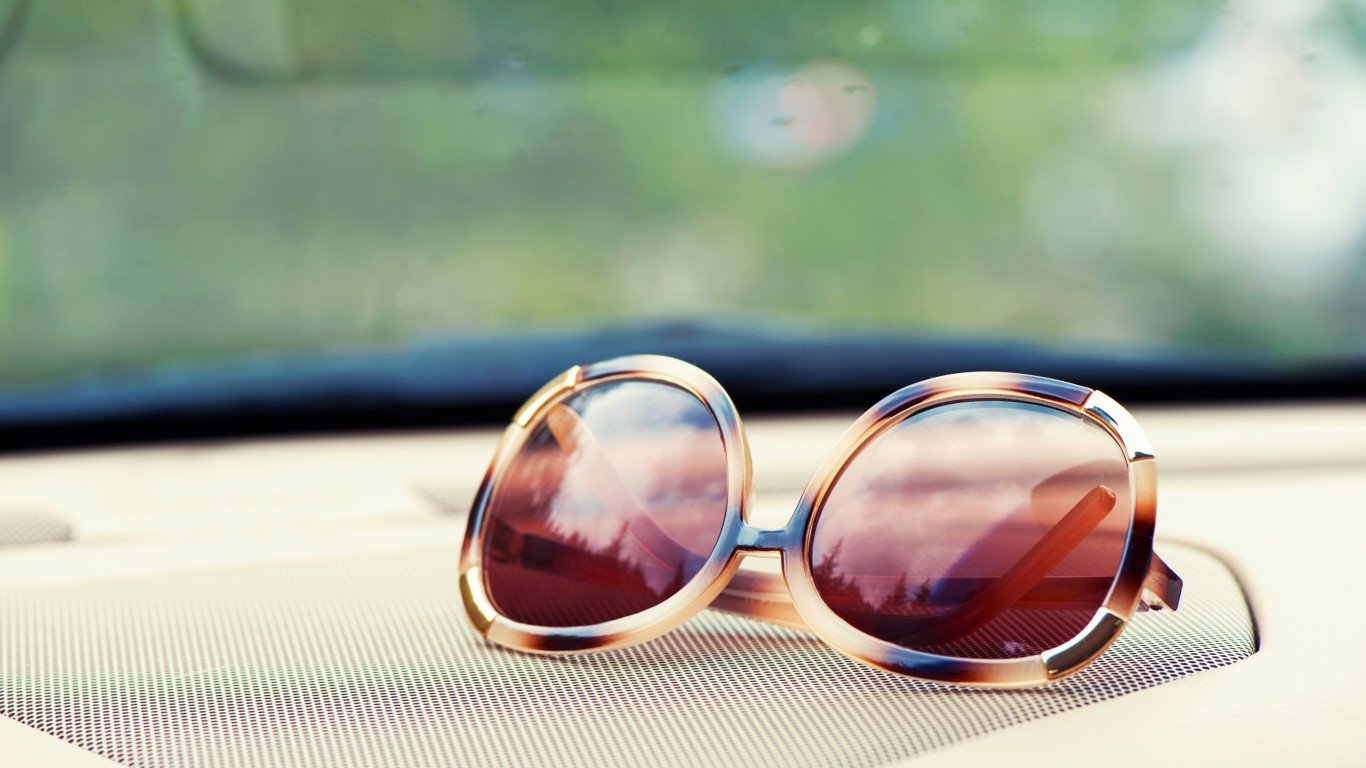
6. Exercise outdoors
Many people think that sweating means burning fat, and so they go outside in the hot weather to run, Dr. Simmons said. “But this is actually the worst thing you can do.” Sweating is the body’s natural process to cool itself down — water evaporates to lower the body’s temperature — but that can lead to dehydration, she explained. “And it’s harder to stay hydrated when it’s hot.” If you want to lose weight, exercise outside in the morning or late at night — never mid-day, Simmons said. “And cut your usual running time in half.” Otherwise, you risk developing heat stroke, she noted. Heat stroke, which occurs when the body’s temperature rises to above 104 F and doesn’t sweat, is a medical emergency.

7. Eat large, fatty meals
Other than the beach, probably nothing screams “summer” more than barbecuing. But “eating large, heavy, and fatty meals is never a good idea,” Dr. Simmons said. Possible food coma aside, it’s a bad idea when it comes to trying to stay cool, too. Eating and digesting the food leads to a small increase in body temperature as metabolism speeds up. This may explain why oftentimes people feel even hotter after eating ice cream than they did before the cold treat. Fat moves slower through the digestive system, which means the body needs more energy to break it down, raising its temperature even more. There are more things you should know about food, digestion, and calories.

8. Drink alcohol
Summer time is party time — and that often involves drinking outside, at a beach or while picnicking, Dr. Simmons noted. But alcohol and heat can be a dangerous combination. As a diuretic, alcohol promotes dehydration and hinders the body’s ability to regulate its temperature, making a person feel warmer. “For every alcoholic beverage, a person should drink two cups of water,” Simmon said. Older people and those with certain health conditions should drink less alcohol, or none at all, and drink even more water in between, she noted.

9. Leave medicine in the car
Some medications need to be kept in a fridge and some in a dark and dry place, Dr. Simmons said. No medication needs to be kept in a hot place, she noted. On a hot day, cars can get very hot — easily over 100 F within an hour. Heat may damage the medicine, according to the National Institutes of Health. It may become less potent, go bad before its expiration date, and, depending on the medicine, it may irritate the stomach. Don’t take your pills if they have changed texture or smell or if they appear cracked or are stuck together. “It’s a good idea to take a small cooler with an ice pack and keep medicine there when you’re out,” according to Simmons.

10. Keep an extra pair of glasses in the car
The inside temperature of a car parked in direct sunlight can reach 131 to 172 F, according to the Centers for Disease Control and Prevention. Extreme heat can damage the frame of your glasses, which may result in them no longer fitting properly on your face. The heat can also damage the lenses by causing them to expand and contract, resulting in distorted vision.






